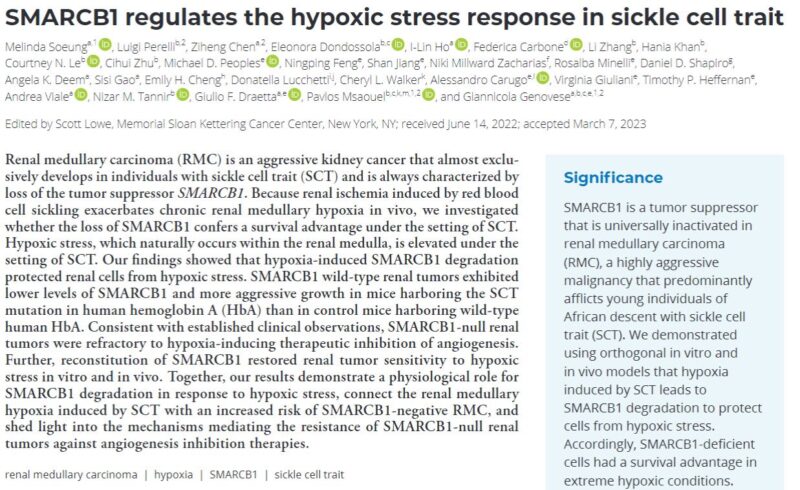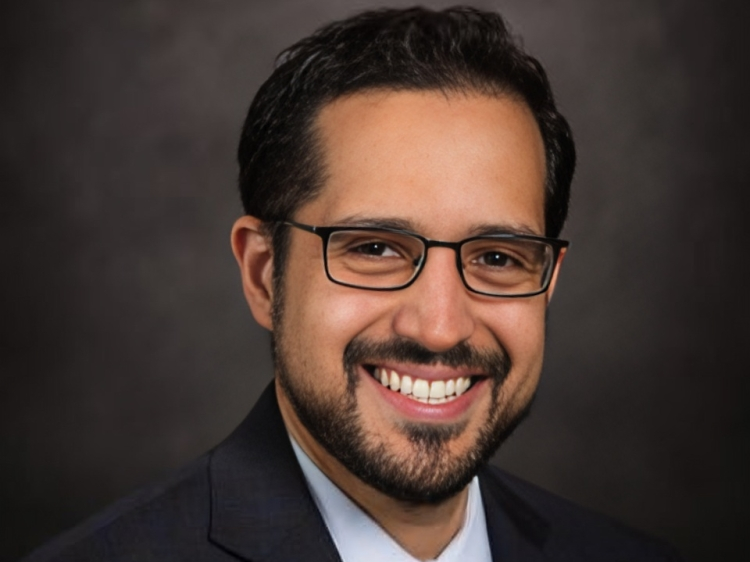Pavlos Msaouel, Assistant Professor of Genitourinary Medical Oncology at MD Anderson Cancer Center, recently posted on X/Twitter:
“Six papers published in 2023 that improved our understanding of Renal Medullary Carcinoma: this study connected hypoxia and SMARCB1 loss in the medulla of individuals with Sickle Cell Trait elucidating a key mechanism of resistance to anti-VEGF treatment.

Accordingly, a prospective phase II trial found that the addition of bevacizumab to platinum-based chemotherapy does not improve outcomes in patients with Renal Medullary Carcinoma.
In addition to hypoxia, another key protective role of SMARCB1 loss in RMC is ferroptosis resistance as shown in this study, which also provided additional evidence that RMC arises from the kidney’s thick ascending limb cells.
Conversely, SMARCB1 loss may also confer sensitivity to proteotoxic and replication stress both of which can be targeted by neddylation inhibition as shown here in vitro and in two PDX models of Renal Medullary Carcinoma.
Interestingly, genetic factors other than sickle hemoglobinopathies may occasionally be associated with RMC, as suggested by this patient with germline NF2 mutation which lies in chromosome 22q right beside SMARCB1 and is often lost in RMC.
We also now have prospective data showing that RMC can rapidly progress in response to standard immunotherapy using agents such as pembrolizumab. Stay tuned for upcoming work on why and how to reverse this & harness the power of immunotherapy.
Overall this has been a landmark year for Renal Medullary Carcinoma research with 2024 promising even more. Grateful to our patients, advocates, clinicians, and researchers working tirelessly to support these research efforts to end RMC.
Source: Pavlos Msaouel/X


